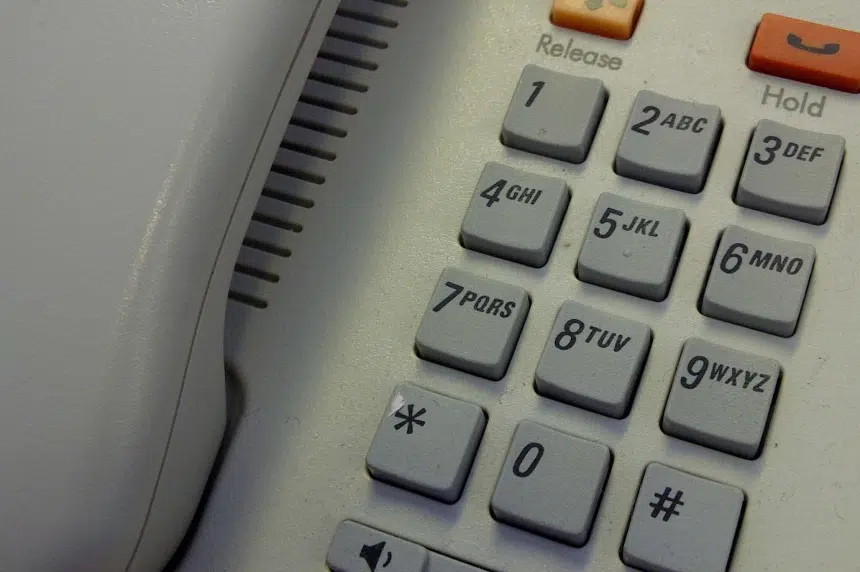With scams making the rounds by way of phone calls, emails and social media, the Regina Police Service is reminding people to be cautious when speaking to someone they don’t know.
“What the scammer tries to do is play on your emotions and get you to respond without thinking. They will try to elicit a response that is based on panic, fear or desperation,” Sgt. Kelley Berting told the Greg Morgan Morning Show on Tuesday, when she shared information and advice as a part of Fraud Awareness Month.
“Anytime there’s any type of request or a threat made followed by any kind of urgent action — if you do not go and get money and send it immediately, these things are going to happen to you — we need to understand that here in Canada, if there was an actual warrant for your arrest or if you did owe outstanding fees to the CRA or any of these other scams that are common, we have processes in place.
“Police may phone you and say there is a warrant for your arrest but we would never tell you that you have to go and purchase gift cards and then send those gift card codes to us.”
She said romance scams have been prominent during the COVID-19 pandemic because of the feeling of loneliness people were feeling during it.
“There has been a lot more interaction through the internet and things like that. Once we get those types of emotions involved and then we present any kind of urgent situation, that can be a bad mix and that will often result in someone suffering a financial loss,” Berting said.
“When you’re having a conversation online with someone, you really never know who it is you are talking to. What we are seeing is that fraudsters are willing to invest a lot of time. It’s actually quite shocking how much time in some cases it will be.
“People will be in these online relationships for several years and throughout that time, as soon as they’ve developed enough trust and the victim believes the relationship is a legitimate relationship and there are some feelings attached to it, that’s when they will start to make requests for money.
“It will start with small amounts of money but there’s usually again some sort of emergency. It might be that ‘My kid was in an accident and he’s going to school in a different country and I can’t float him the cash right now so could you lend me $5,000 and I promise I’ll pay you back’ and then another tragedy happens and then it goes on and on.”
She said there have been instances where people have fallen victim to scams but have continued to send the scammer money even after the police have talked to them about it.
“You just have to be cautious with all forms of communication and know that the fraudsters are really trying to target you through your phone, through your email, through text messaging, social media, internet, your regular mail,” Berting said. “Any way that they can communicate with you, they will try to use to get what they want.”







